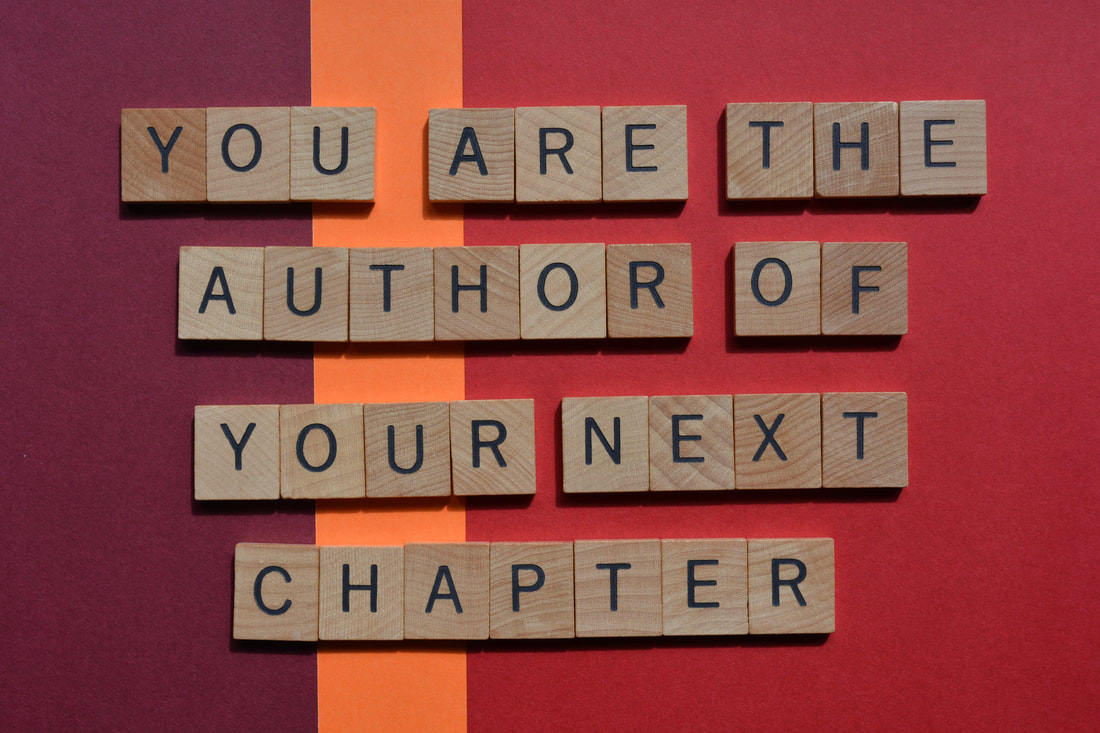5 proven methods to get your writing restarted after it's ground to a halt“A writer,” as Thomas Mann once famously said, “is someone for whom writing is more difficult than it is for other people.” And if you’ve ever found yourself putting more energy into avoiding your work-in-progress than actually just writing the damn thing (guilty), you’ll know how accurate he was. The good news is, there are ways to get around the obstacles that get in the way of your writing journey. The bad news is that you might actually end up busting through all the excuses and having no option but to get writing again. Read on at your peril… What is writer’s block?It might seem like an obvious question, but understanding what writer’s block means to you will be the key to moving past it. At its heart, writer’s block is simply a feeling of being “stuck” in your writing progress, and the longer it continues, the more entrenched that feeling of “stuckness” becomes, so that the whole process becomes fraught with frustration. This often leads to situations where an unfinished work is abandoned by its author, who simply doesn’t know how to get it moving again, or (something I see a lot in classes and mentoring) authors who become serial beginners, writing openings to story after story and finding it impossible to progress beyond that. “I don't believe in writer's block,” says bestselling author Jodi Picoult. “Think about it - when you were blocked in college and had to write a paper, didn't it always manage to fix itself the night before the paper was due? Writer's block is having too much time on your hands.” It’s not always the case that writer’s block is caused by having too much time to write (if only…) but, as it happens, this is often a good place to start. "Sometimes, writing is about showing up at the keyboard and second-guessing all your life choices while you hate-type a bunch of sentences." 1. Try writing lessIt’s a myth – and, to my mind, a harmful one – that great works of literature are composed in a frenzy of inspiration, hours melting away as the author’s hands work furiously at the keyboard. Sometimes writing is like this, sure. But more often, writing is about showing up at the keyboard and second-guessing all your life choices while you hate-type a bunch of sentences that you know you’re going to have to edit hard. This is the reality of the craft, and if you’ve had a string of writing sessions like this, it’s natural to feel yourself slowly grinding to a halt. After all, you’ve only got so much energy, and writing through a difficult patch where the words are fighting you is draining. Why on earth would you want to do that for an hour or two after a hard day at work? So… don’t. If writing for an hour feels impossible, don’t write for an hour. Write for fifteen minutes. Or ten. Or even five. If that feels impossible, write three sentences. Or two. Or one. The important thing is to get started, which is much easier to do if you know that you don’t have to slog for ages. With a bit of luck, releasing the pressure like this makes the words flow more easily and you’ll accidentally end up writing more than your target – but, crucially, you don’t have to. You can stop after fifteen minutes. Or ten. Or five. Sure, it’s going to take longer to finish your novel if you’re writing in microbursts, but you know what makes it take even longer? Not writing at all. 2. Know the process and the pitfallsThere are some points in the writing process where it just gets harder. Not for everyone, and not for every story, but for most of us and for most stories. Sadly, one of those points is really early on. You’ve probably heard of the Marathon of the Middle. It refers to the fact that Act 2 (from around the 25% mark to the 75% mark in any given narrative) is a lot. It’s where the story emerges, intensifies, evolves and pushes on towards resolution, and it often kicks in as early as 10-15,000 words when you’re writing a novel. The shift from Act 1 (set-up) to Act 2 (rising action) is substantial and, if you don’t know to expect it, it can hit you like a tonne of bricks. All of a sudden, your story, which was moving along so nicely, begins to feel really difficult to write. This very often leads to novels being abandoned. Writing less is one of the ways to get through Marathon of the Middle – and it does eventually stop feeling like you’re pushing a boulder uphill and start to feel more like something fun, enjoyable, and possible, so you’re not going to spend the next 70,000 words writing in 5-minute bursts. It will get easier, and you’ll find yourself writing great chunks of the piece in a single sitting once again. There is another thing you can try, but it doesn’t work for every writer, so if it’s not for you, stick to writing little and often. "There are some points in the writing process where it just gets harder. Not for everyone, and not for every story, but for most of us and for most stories." 3. Plotting and outliningAgain, this is not a solution that works for everyone. Some writers simply need to write to find the story, and that’s okay. But other writers find that having milestones to aim for helps get them moving and keep them moving, especially during moments of writer’s block. I've written elsewhere about how you can get started with plotting a novel, but the W-Plot structure is a straightforward, accessible, and above all flexible method to explore. If you’re writing a narrative that fits the mould (usually coming-of-age, quest, or epic fantasy narratives), using the steps of The Hero’s Journey can provide a ready-made, fill-in-the-blank roadmap for you, but I’d caution against trying to fit other narrative types into that mould; it’s rarely productive. Even just brainstorming a few ideas of what obstacles your protagonist might encounter can be enough to get you moving again. 4. [Fill in later]Sometimes, a particular scene just will not cooperate. If you write non-linearly (i.e. a bit from here, a bit from there, a bit from somewhere else, then join it all together when you know what the story’s about), that’s not a problem – you just skip onto another part of the story. Us linear writers could learn a thing or two from that. When your process is to write linearly (A to B to C to D to E, and so on until you get to Z) it can feel as though you must complete a scene or a sequence before you can move on to the next bit. That’s really not the case, though. This is a first draft. Lots of authors call this the junk draft. And the reason they call it the junk draft is because it can be as terrible as it needs to be to get a draft complete. Here’s poet and novelist Julian Gough’s take on the idea: "My own first drafts, by the way, have gotten worse over the years, rather than better, as I’ve grown more confident in my rewriting and in my editing of myself. I now know I can make the roughest material better with a lot of drafts and a lot of work; I just need something to work on. So I write first drafts that are full of typos and holes. And when I say holes, I mean actual gaps, where I might note ‘fix this problem later’ or ‘blah blah blah’ for a conversation that I don’t feel like imagining yet. Also, I usually start writing now with no idea what anyone is called, so I just type ‘&&&&&&’ where the names should be. (I’m writing these characters into existence – it’s easier to name them later when I know who they are.) Or I’ll simply write long dialogue scenes in an unbroken flow, with no quote marks, no paragraph breaks, and no attribution to anybody. I know who’s speaking, and I’ll tidy all that up later; what’s important to keep up the flow, to get the gist of it down without standing in my own way." - Julian Gough If a scene is blocking your writing, there’s absolutely no need to let it consume the creative energy you need to complete Draft 1. Simply bullet point what you think needs to happen and leave it for Draft 2. It’s Future You’s problem, and Future You will have a complete draft to work with, so they’ll be better placed to figure it out. 5. Dig into characterI can’t tell you how many times I’ve hit a brick wall in my writing because I didn’t know a character well enough. I plot like a woman possessed, and it still can’t get me past incomplete character development. If you’ve tried all of the above (or even if you haven’t) and your writing is still blocked, there’s a really good chance that you haven’t done enough character work on somebody important. It might be your protagonist. It might be a key ancillary character. (It might even be your worldbuilding, for narratives in which the setting functions similarly to character.) If in doubt, it’s always worth taking a step back and doing some extra-narrative work on finding out who these characters are, what makes them tick, what events in their lives have contributed to the person they’ve become when we meet them in your story. And if you need some inspiration to get started, check out these suggested exercises here and here. Above all else: be kind to yourselfOne final note on writer’s block: we heard a lot from the folks who wrote their novels during lockdown in 2020 (and absolutely fair play to them all – it’s a hell of an achievement). What we didn’t hear so much about were the many, many more writers who found themselves creatively paralysed during that horrible time. It’s normal in moments of heightened tension – whether that be a global pandemic or a personal uptick in the amount of stress you’re dealing with – to find that the words won’t come. Creativity does not play well with overwhelm. So, while it’s almost always better to do a little rather than nothing at all, what I’m saying is that it’s okay to look after yourself first and foremost. If you’re blocked and you don’t know why, I reckon the tips above should help. But if you’re struggling with the world beyond your writing, give yourself some grace. The stories will still be there when the world looks a bit brighter, and you’ll be ready to tackle them again. Further reading: The 3 things that get in the way of writing progress (and what to do about them) Writers block when your novel is nearly finished: what it is, why it happens, and how to fix it
0 Comments
Leave a Reply. |
Tips, tricks & advice to help your writing shineCategories
All
Blog updates on the first of every month.
|





 RSS Feed
RSS Feed